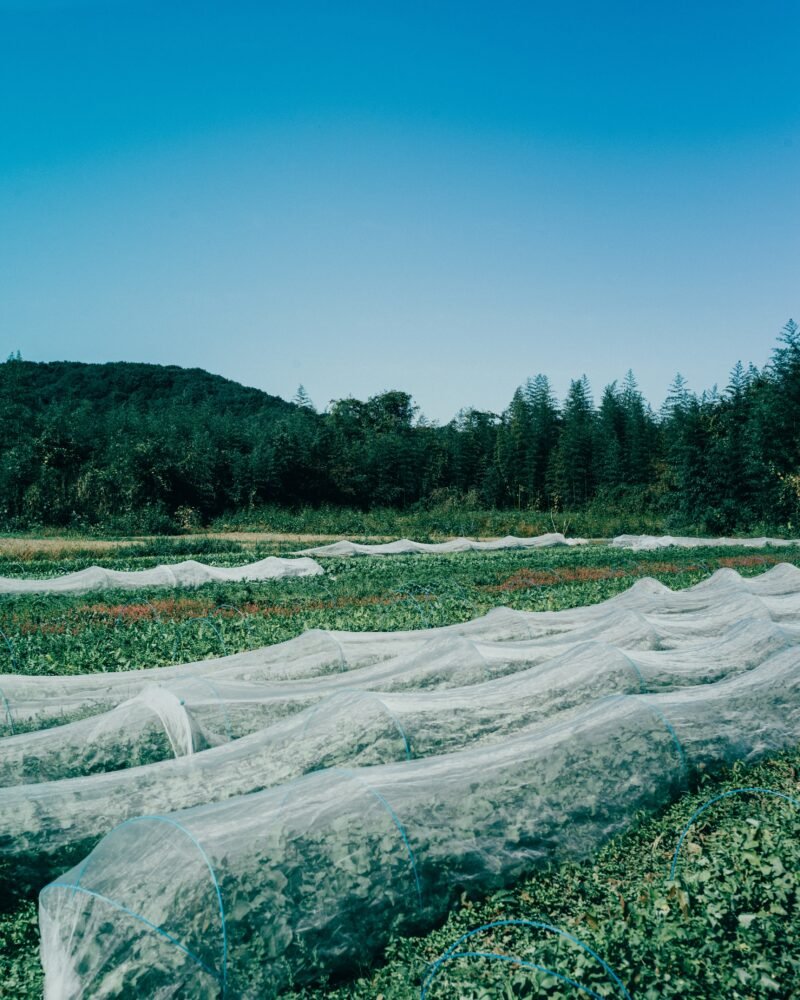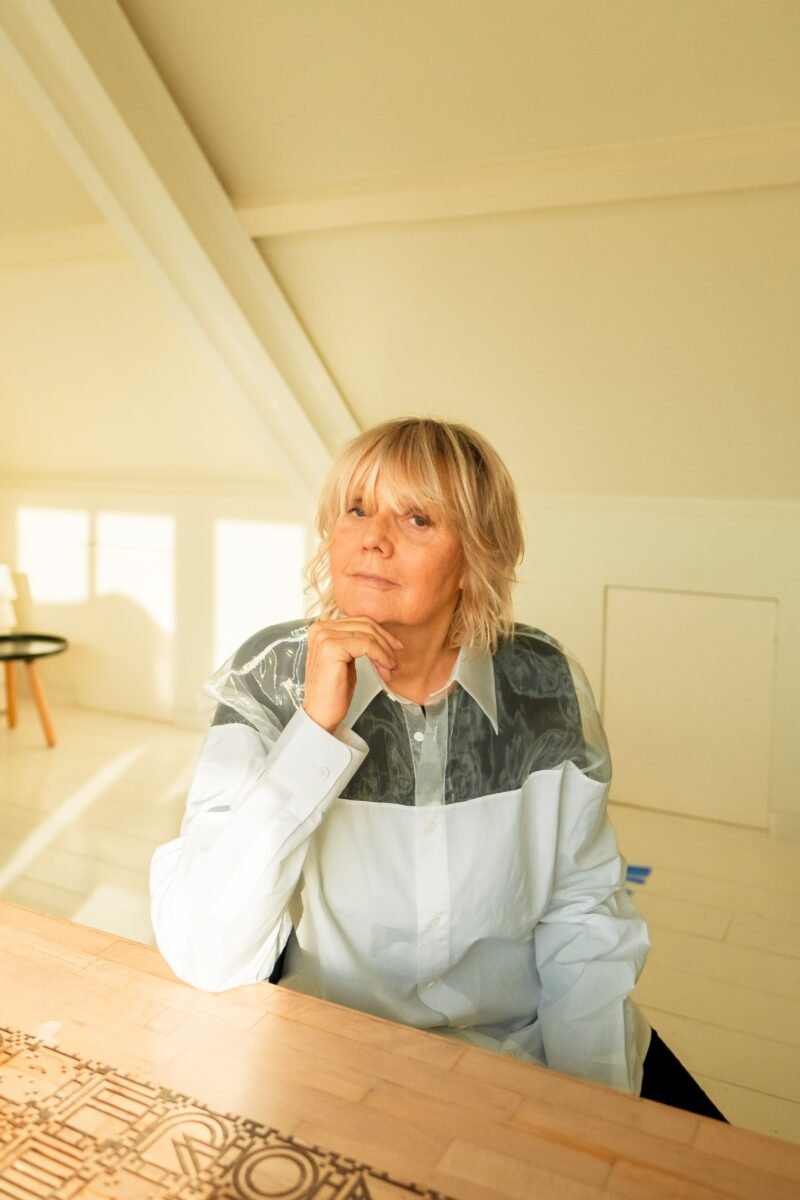Top 5 Of The Greatest Urban Rooftop Farms
Urban farming has become one of the major international urban trends — a good reason for us to make a Top 5 of the greatest rooftop farms we’ve come across over the last years.
All over the world, people feel the need to start producing their food locally again. In cities, however, this is pretty difficult due to the lack of open spaces. The urban farming movement started in cities like Detroit that face a lot of vacancy. These shrinking cities have plenty of open space to produce locally grown vegetables. Nevertheless, increasing numbers of people in dense cities like New York, Tokyo and Hong Kong feel the urgent need to grow produce in their own city. The only spaces left in these cities are rooftops. Five years ago rooftop farms were utopian and only expressed in pictures, renderings and collages. Now they emerge all over the world, making the city greener from above. Out of all these initiatives we’ve selected five of the most interesting urban rooftop farms. Which rooftop farms do really produce food? How are they innovative and do they make the city a better place?

1. HK Farm (Hong Kong)
HK Farm is a relatively new farm in the amazingly dense city of Hong Kong. The farm, founded in March this year, aims to communicate the value of rooftop farming and the benefits of locally produced food. Besides being a farm, the artistic organization behind HK Farm focuses on designing products and offering urban farming-related services in the city of Hong Kong. While in the rest of the world farms are led by farmers, HK Farm is the first farm in the world with a creative director. Michael Leung is the founder and creative director of HK Farm. He also runs HK Honey and co-founded a community-oriented art and design platform called Shanghai Street Studios in Yau Ma Tei. Leung’s interest in agriculture started abroad when he visited other rooftop farms like the world’s largest rooftop farm, Brooklyn Grange. HK Farm is limited in size and won’t produce much food over the year, but we must admit that the farm looks very stylish, thanks to its creative director.

2. Brooklyn Grange (New York City)
Way more serious in terms of produce is the Brooklyn Grange urban rooftop farm. Claimed to be the largest urban rooftop farm in the world, Brooklyn Grange serves the local community with real organically produced vegetables and fruits. As producing food should be the focus point of a farm, we believe that this Brooklyn initiative deserves a spot on this list. With over two acres of rooftop under cultivation in Brooklyn and Queens, Brooklyn Grange has sold over 40,000 lbs of veggies to restaurants, CSA members and the public via weekly farm stands. But the farm has expanded beyond its mission to grow vegetables — it currently keeps egg-laying chickens and it has launched a commercial apiary, cultivating bees for their honey. The educational non-profit farm City Growers hosts thousands of New York’s youth for educational tours and workshops each season. Brooklyn, by the way, could be considered the international capital of urban farming. Besides Brooklyn Grange it also hosts the Eagle Street Rooftop Farm in Greenpoint and Gotham Greens, a rooftop farm which consists of sterile greenhouses that produce over 80 tons of premium quality produce, year-round.

3. Dakakker (Rotterdam)
In Rotterdam, an architecture collective has reclaimed an old building in the center of the city and started using the roof to build an urban farm on top of it. As part of the 5th International Architecture Biennale Rotterdam, this first rooftop farm of the city on top of the Schieblock building was built as a Test Site. The garden houses vegetables and herbs (and some bees, too!), The urban rooftop farm, called Dakakker, is an initiative of architecture firm ZUS and has sold its first veggies and herbs to local restaurants and shops. Also in Amsterdam, the Netherlands, the Zuidpark rooftop farm has opened its doors last year. Located along the city’s ring road, Zuidpark focuses (more than other urban farms) on activities, workshops and education, as well as on organizing special dinners with a view.

4. City Farm (Tokyo)
City Farm in Tokyo sets itself apart from European and American rooftop farms. The idea of producing local food for the community is the same and also in Tokyo activities are organized to let the urban population witness how food grows. The type of food though is slightly different and focused on the Japanese kitchen. Crops produced by City Farm includes rice, egg plants and soy beans. This requires different farming techniques. As rice grows in wet circumstances, draining and irrigating the roof will be different from Western-world rooftop farms. On September 1st, Iimura Kazuki opened Omotesando Farm, a rooftop garden rental space in a central upscale commercial and residential district. The farm offers sixteen small plots at rents ranging from $170 to $250 per month.

5. Lufa Farms (Montreal)
Talking large-scale farming from an entrepreneurial point of view, Lufa Farms in Montreal is pretty interesting. On top of a two-story building the farm has built a 31,000-square-foot greenhouse. Over 40 different crops are being produced year round in the rather innovative greenhouses that can even stand the snow in the Canadian winters. For watering the plants the farm uses the irrigation system of the building. For some crops produces in this greenhouses, extra energy is needed. This energy is largely provided by the building too. This way Luna Farms really uses the advantages of the urban conditions, which makes it a real urban rooftop farm. Lufa Farms is currently looking to expand its activities to the United States and find a way to scale urban farming.



